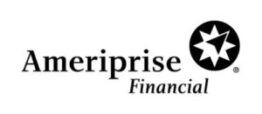
FINRA finally acts on what we knew all along.
On September 27, 2011, the Financial Industry Regulatory Authority (FINRA) obtained by Acceptance Waiver & Consent (AWC), a permanent bar against former Wachovia Securities, L.L.C. and Wells Fargo Securities, L.L.C. stockbroker, Tom D. Hamsher.
Hamsher was accused of making false statements in connection with the sale of the Federal National Mortgage Association or Fannie Mae; (FNMA) and the Federal Home Loan Mortgage corporation or Freddie Mac (FMCC), and falsely represented that these preferred securities were “bonds” and that upon maturity, the customers would recover their initial investment.
Hamsher also falsely represented that these preferred securities were backed by the full faith and credit of the United States government, which misled investors into believing that their principal was guaranteed against loss.
Wachovia Securities, L.L.C. was acquired or changed its name to Wells Fargo Securities, L.L.C. in January 2009.
While it has been reported that Wachovia and Wells Fargo paid approximately $8.9 million to settle customer claims based upon Hamsher’s false statements, astonishingly Public Disclosure Records for Hamsher reflect that there have been 152 customer initiated investment related complaints against Wachovia Securities, L.L.C. and Wells Fargo Securities, L.L.C. based upon his conduct.
Nicholas J. Guiliano, Esquire of The Guiliano Law Group has filed dozens of cases across the country specifically related to fraud in connection with the sale of the preferred securities of financial institutions, including many cases against Wachovia Securities, L.L.C. and Wells Fargo Securities, L.L.C.
In substantially each of these cases, these preferred securities were sold to otherwise conservative investors seeking income, and were told they were like bonds, fixed income investments, where customers could expect to receive dividend or interest payments, without risk.
In fact, with respect to the Federal National Mortgage Association Series T 8.25% non-cumulative preferred stock, Wachovia Securities acted as one of the lead underwriters in May 2008 selling 14.7 million shares or $367 million of FNMA preferred to its customers, and realizing commissions in excess of $18 million.
However, long before May 2008, there was substantial adverse information in the market place regarding the troubles at the Federal National Mortgage Association.
In September 2004, the Office of Federal Housing Enterprise Oversight (OFHEO) announced that the Federal National Mortgage Association (Fannie Mae) was under investigation for engaging in deceptive accounting practices. Subsequently, in December 2004, Fannie Mae announced a $6.3 billion restatement of its earnings, the largest restatement in American history, and in May 2006, announced a $400 million settlement with securities regulators and the OFHEO for violating certain accounting standards.
In the early Spring of 2007, the subprime mortgage industry, and the value of certain securities with exposure to the mortgage industry also collapsed. Fannie Mae was not immune from this collapse. In November 2007, Fannie Mae announced a reported a $900 million loss, and a $8.7 billion decline in the value of its assets, the period ended September 30, 2007. In November 2007, Fannie Mae also reported $56.2 billion in exposure in subprime and Alt-A loans as of period ended September 30, 2007.
In a November 9, 2007 conference call with securities analysts, Fannie Mae President and Chief Operating Officer, Daniel H. Mudd, told investors that the Company had approximately $3 trillion dollars at risk in residential home mortgages, but that the Company only had reserves of approximately $41 billion.
As a result, on December 4, 2007, Fannie Mae announced that the Company would reduce its dividend, and in February 2008, the Company, citing continued deterioration in the housing market and an increase in its credit loss experience, reported a $7.1 billion decline in the value of its assets and a net loss of $2.1 billion.
On March 10, 2008, Barrons’ Cover Story, was “Is Fannie Mae The Next Government Bailout?” (The mortgage giant’s house isn’t well protected against a stormier credit market. If its roof caves in and a bailout is needed, shareholders, could get buried.) Following the Barrons’ story, shares of both common and preferred Fannie Mae fell precipitously, as it was widely believed that the company was insolvent.
On May 6, 2008, following the announcement that FannieMae planned to raise $6 billion through the offering of the Series T, 8.25% Non-Cumulative Preferred Shares, The Business Wire announced that Fitch Ratings placed these shares on a ratings “negative watch,” based upon the company’s net loss of $2.2 billion for the quarter ended March 31, 2008, and continued expected “severe weakness in the housing market and expected increases in credit losses.”
The Risk Associated With These Securities
Even a cursory reading of the “Risk Factors” disclosed in the Fannie Mae Preferred Prospectus reveals the risk associated with these securities:
- We have experienced increased mortgage loan delinquencies and credit losses, which had a material adverse effect on our earnings, financial condition and capital position in 2007 and the first quarter of 2008.
- Increased delinquencies and credit losses relating to the mortgage assets that we own or that back our guaranteed Fannie Mae MRS continue to adversely affect our earnings, financial condition andcapital position.
- We are exposed to credit risk relating to both the mortgage assets that we hold in our investment portfolio and the mortgage assets that back our guaranteed Fannie Mae MBS. Borrowers of mortgage loans that we own or that back our guaranteed Fannie Mae MBS may fail to make required payments of principal and interest on those loans, exposing us to the risk of credit losses.
Federal National Mortgage Association Prospectus, May 13, 2008.
On September 7, 2008, federal regulators seized control of Fannie Mae, and since that date, these securities are substantially worthless.
In each of these cases it was alleged that the stockbroker recommending the purchase of these securities failed to perform any reasonable due diligence, lacked any reasonable basis to recommend the purchase these securities, or alternatively, he was aware of the adverse information concerning FNMA preferred but exposed their customers to considerable risk by purchasing these otherwise speculative securities in an effort to generate fees and commissions from Wachovia’s underwriting activities.
It was always believed that many of these firms had prepared offering summaries, offering fact sheets, or other marketing materials or summaries distributed to registered representatives in connection with the underwriting of these securities which targeted fixed income investors, however, each of the firms denied that any such documents “exist.”
Curiously enough however, while Wachovia has always denied the existence of research reports or other documents concerning specifically FannieMae preferred securities, in connection with the Hamsher matter, FINRA uncovered that:
On July 11, 2008, Wachovia ad removed FNMA and FMCC preferred stock from its recommended Fixed Income Priority List because of extreme price volatility; on July 16, 2008, Wachovia changed its ratings for financial companies preferred securities to “unsuitable” for conservative income investors; and on July 17, 2008, the Wachovia recommended that investors “who could not tolerate extreme price volatility consider reducing their exposure to the preferred stocks of FNMA and FMCC when market opportunities arose.”
Of course it took FINRA more than three years to bring their action against Hamsher, which curiously is immediately after the statute of limitations with respect to securities fraud claims may have expired. During this time of course Wachovia and Wells Fargo vigorously defended these cases across America, denying all liability.
Notwithstanding that Wachovia has an affirmative duty to supervise the sales practices of its registered agents, including Hamsher, pursuant to FINRA Conduct Rule 3010, despite the 152 customer complaints involving Hamsher’s conduct, there does not appear to be an enforcement actions against Wachovia or Wells Fargo for the failure to supervise Hamsher’s sales practices.
As stated above, Wachovia realized more than $18 million from its underwriting of the FannieMae preferred securities, but was only made to pay $8.9 million as a result of Hamsher’s conduct. Notwithstanding that there are, or at least were, more than Hamsher’s 152 cases, where Wachovia or Wells Fargo was made to pay for false statements made in connection with these offerings, it does appear that fraud does pay, and certainly the regulators who only come in well after the fact, perhaps intentionally, really do not assist public investors who bring civil claims in arbitration to recover their investment losses.
Guiliano Law Group
The practice of Nicholas J. Guiliano, Esq., and The Guiliano Law Group, P.C., is limited to the representation of investors in claims for fraud in connection with the sale of securities, the sale or recommendation of excessively risky or unsuitable securities, breach of fiduciary duty, and the failure to supervise. We accept representation on a contingent fee basis, meaning there is no cost to unless we make a recovery for you, and there is never any charge for a consultation or an evaluation of your claim. For more information contact us at (877) SEC-ATTY.








